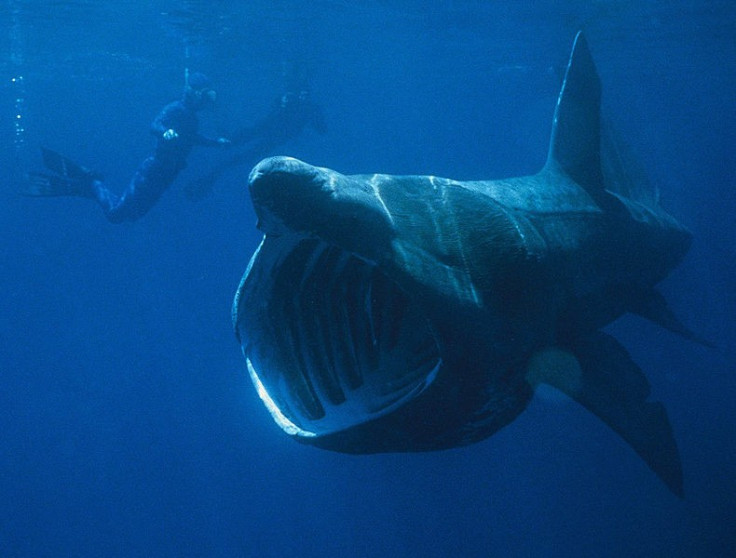Basking Shark Spotted off Plymouth, British Public Asked to Take Note of 'Unusual Movements'

Shark experts from the National Marine Aquarium and the Shark Trust are asking the British public to take note of any unusual movements they see in coastal waters after a basking shark was spotted close to Sutton Harbour in Plymouth.
Following this early sighting, the experts are asking people who see the endangered creatures in the water to record their sightings.
The BBC reported that basking sharks are protected under European and UK law, so it is illegal to disturb or harass them. This species of shark is listed as Endangered Status on the Red List of the International Union for Conservation of Nature. Members of the Shark Trust have therefore urged the public to report any sightings.
The shark is reportedly considered a delicacy in certain parts of the Far East and researchers feel that this might threaten the shark's numbers around the world.
As one of over 30 species of sharks which are native to British coastal waters, basking sharks can be seen close to the coast during the spring and summer, as they come to feed on plankton.
"Visitors to the coast this spring and summer may be fortunate enough to catch a glimpse of a basking shark in shallower waters. They tend to favour the plankton-rich areas around the Devon and Cornish coast and the coastline around the Isle of Man, Ireland and Scotland," Dr David Gibson, Managing Director of the Plymouth-based National Marine Aquarium, said in a statement. "The sharks may look dramatic with their large, open mouths, but in fact they are gentle creatures and are seriously endangered, due to in part to a legacy of over-exploitation."
Although relatively slow moving, basking sharks are capable of demonstrations of impressive strength and on occasion can breach clear of the water.
"Basking sharks are quite an enigma, but year on year the research community is learning more about their behaviour through techniques such as tagging, photo-identification and genetic sampling. The public can also help by reporting shark sightings to the Trust website," Ali Hood, Shark Trust Director of Conservation stated.
The Shark Trust has released a few guidelines for the public in case they get close to basking sharks:
1. Don't panic. Even though basking sharks can reach up to 12 metres in length and can weigh up to a massive 7 tonnes, they are gentle giants.
2. Make sure you maintain a distance of at least four metres between you and the shark so as not to startle it.
3. If you are in the water with other people, keep together in a group, but don't invite others over to take a look. Don't use underwater propellers or anything else that could frighten them. As basking sharks often travel in groups, it's worth knowing that if you spot one on the surface, there are usually more hidden below.
4. If you have a camera handy, take a number of photos of the dorsal fin and any distinguishable features on the shark, as this may help the Shark Trust re-identify it in the future.
5. Gently move away, and contact the Shark Trust to tell them about your sighting.
© Copyright IBTimes 2025. All rights reserved.



















